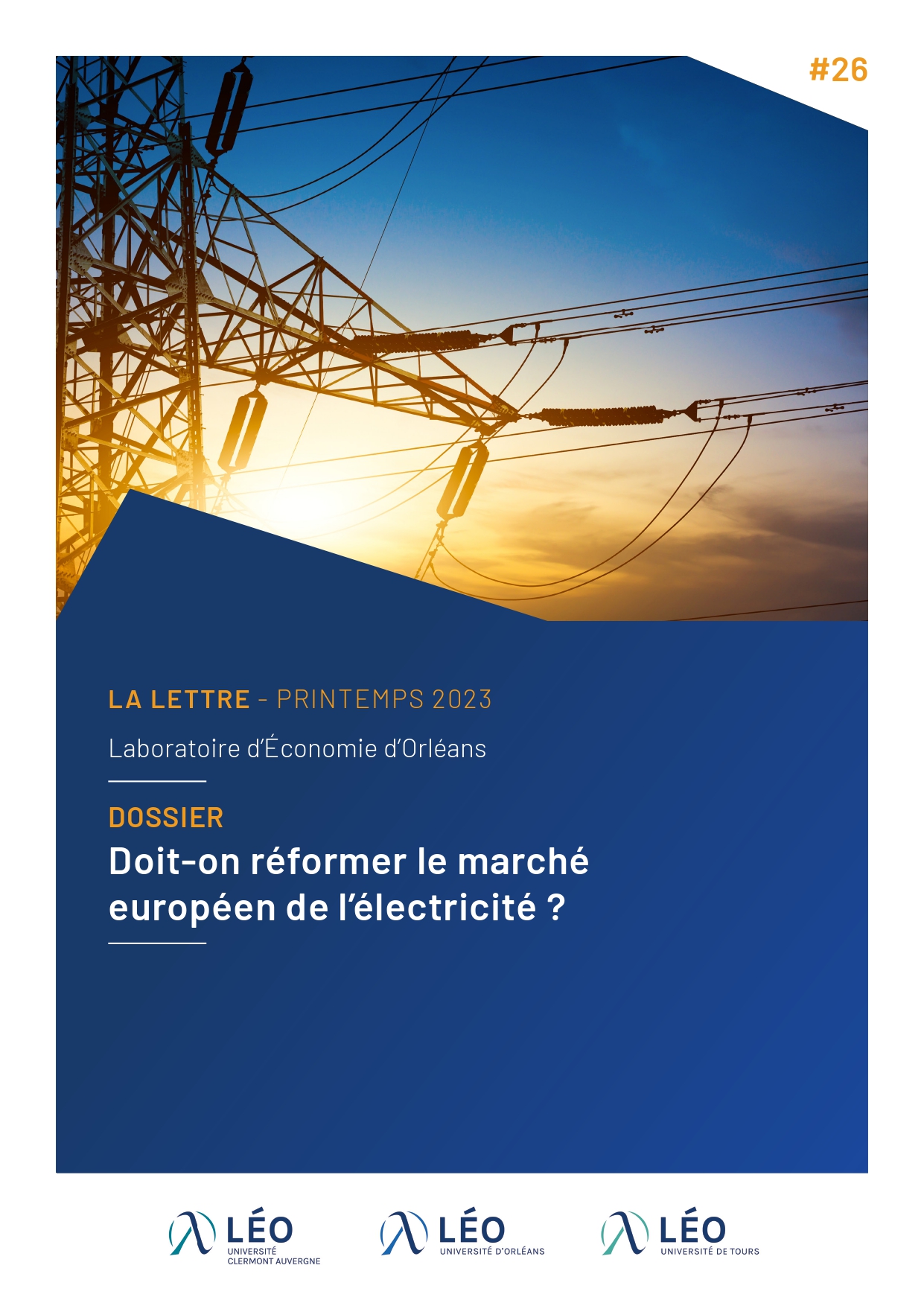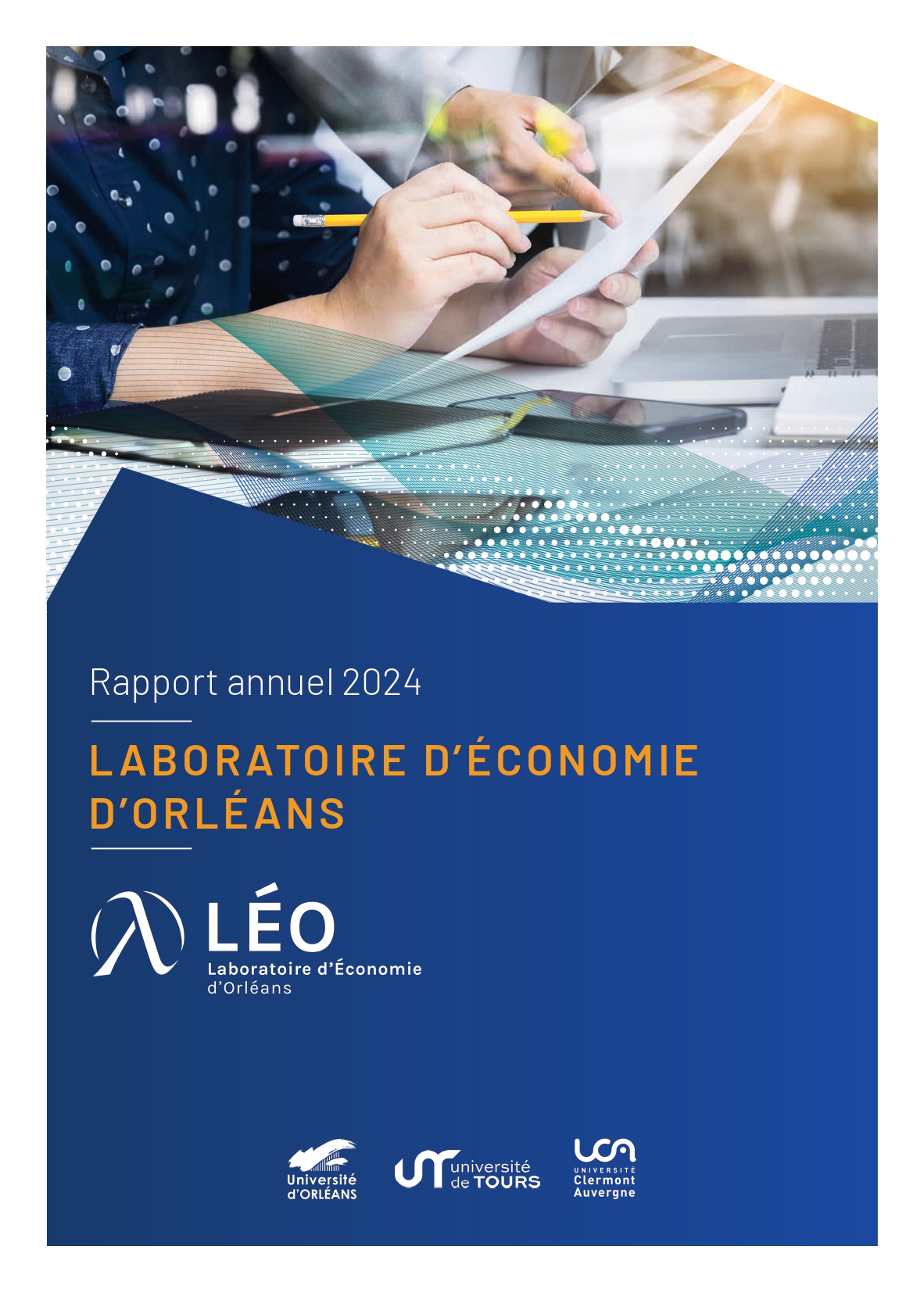
1ère Conférence Annuelle « Les ECOPOL »

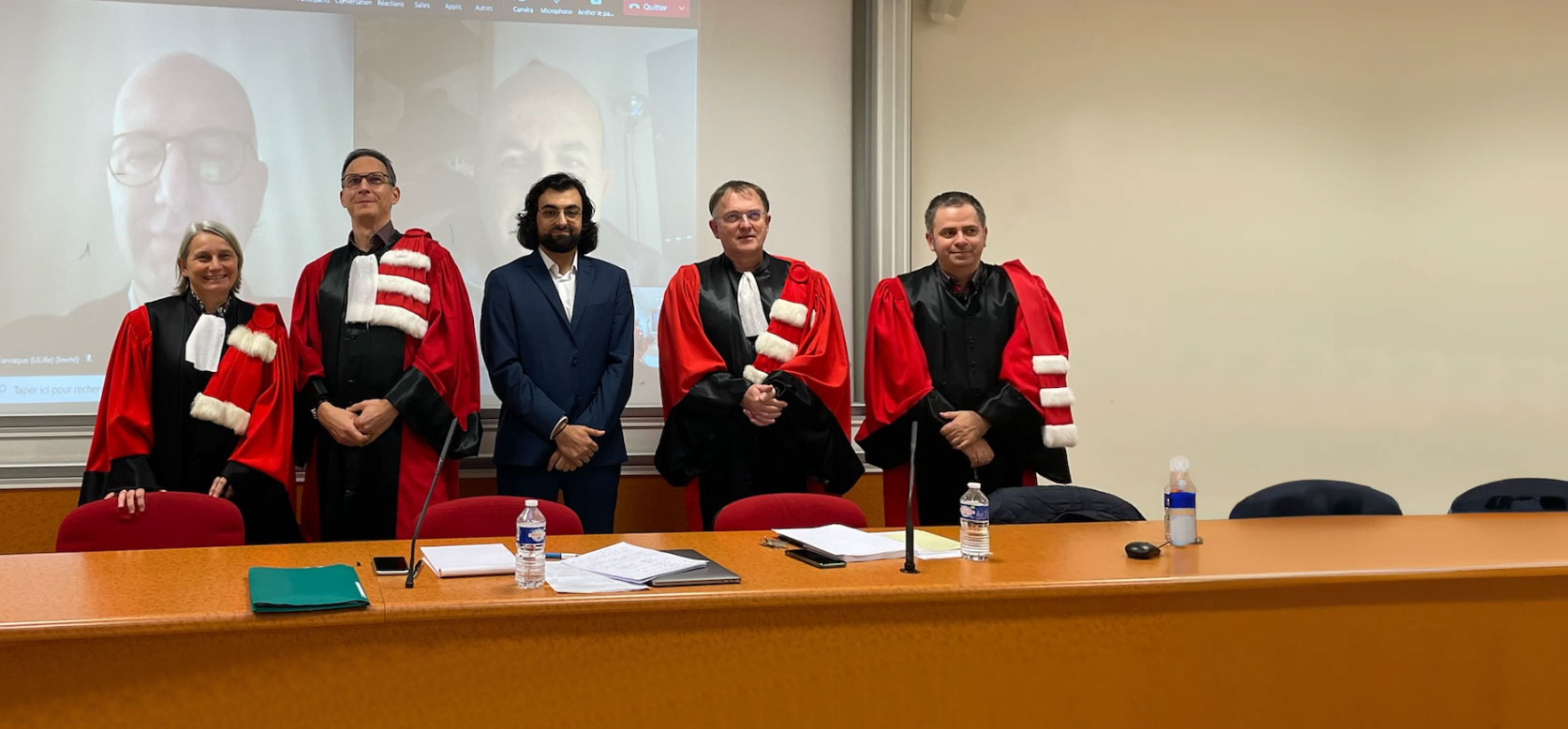
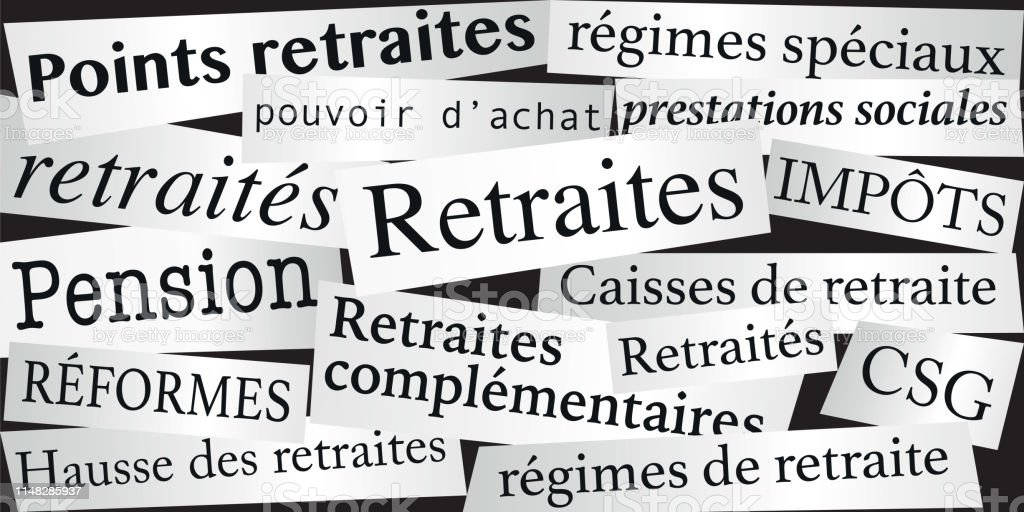
L'Économie en centre-ville d’Orléans : le LÉO et le futur campus universitaire ouvriront sur le site Porte-Madeleine en Septembre 2026
Les membres et président du jury félicitent chaleureusement Hugo ORIOLA pour sa brillante soutenance de thèse qui porte sur l'impact direct ou indirect des actions de la banque centrale sur le résultat des élections.
Pourquoi est-il si difficile de réformer les retraites en France ? Une réflexion d'Anne Lavigne, Professeur en économie au LÉO et conseillère au COR de 2016 à 2022
Le LÉO est un laboratoire d'économie rassemblant des enseignants-chercheurs de l'Université Clermont-Auvergne, de l'Université d'Orléans et de l'Université de Tours.
Il comprend une centaine de membres, dont les recherches couvrent trois grands domaines de compétence :
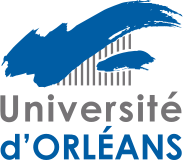

1ère Conférence Annuelle « Les ECOPOL »
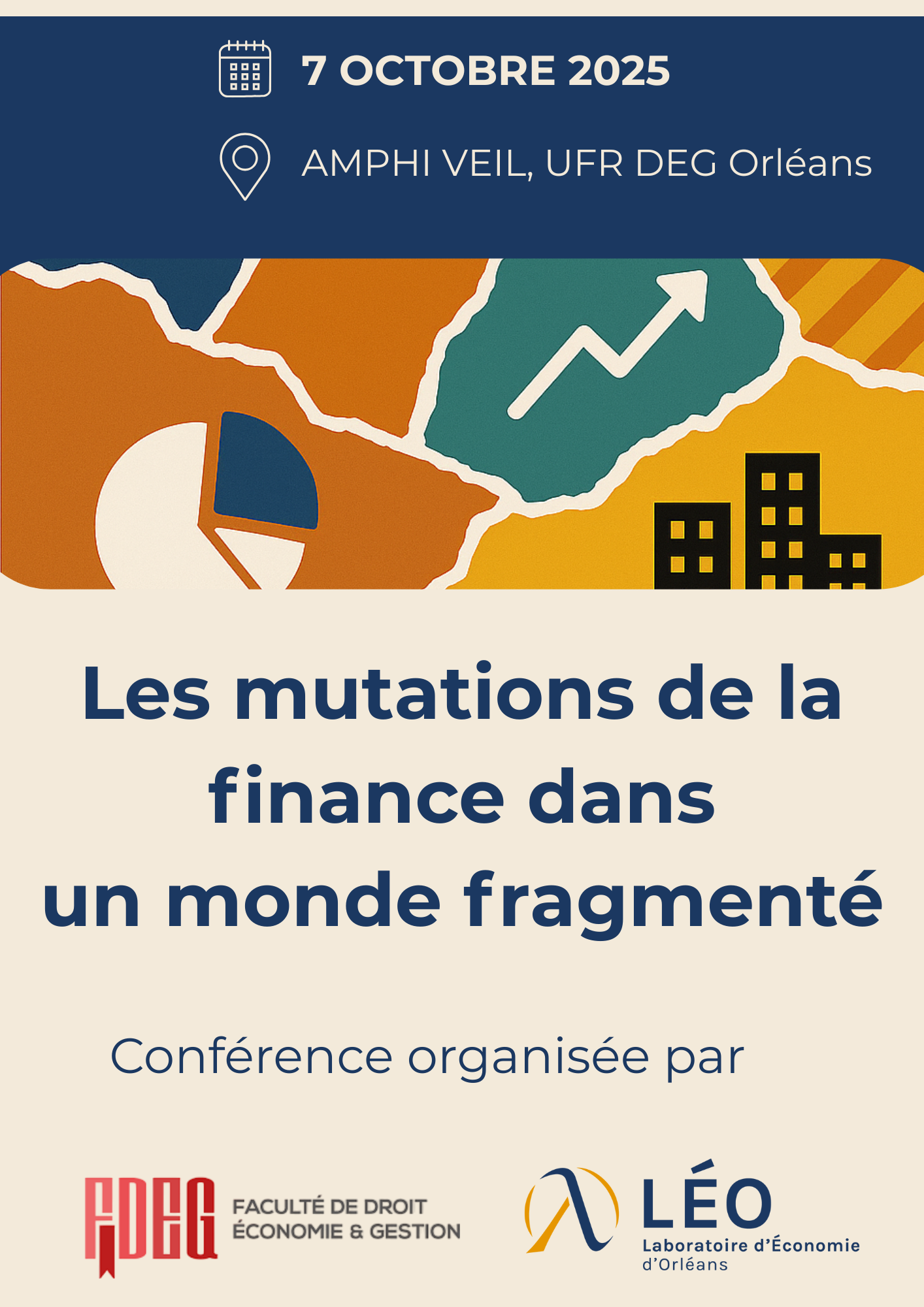
Les mutations de la finance dans un monde fragmenté

Forecasting Inflation Expectations with Adaptive Learning

Carbon curse: As you extract, so you will burn
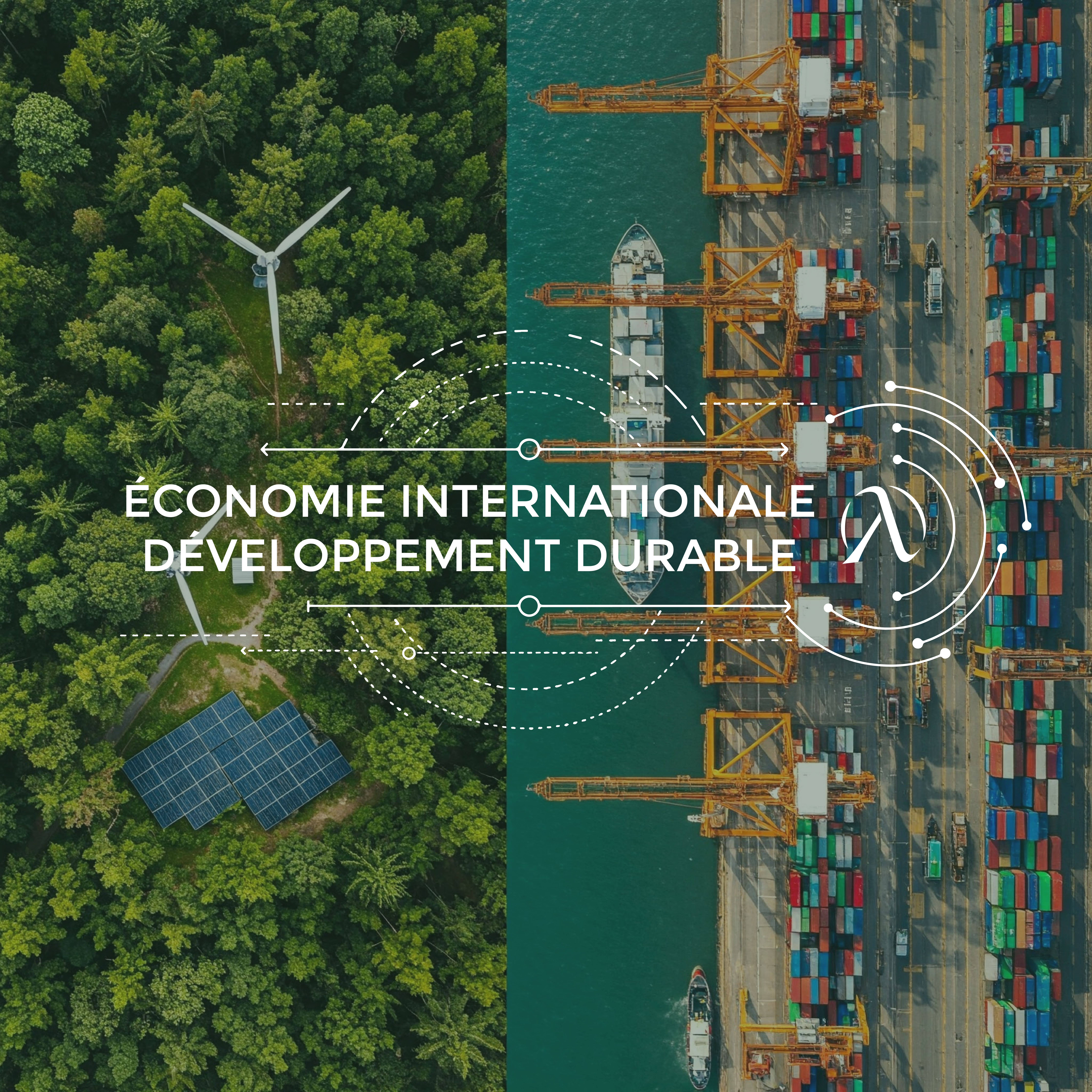
Trusting up: How Social Hierarchies shape Social Trust

Droughts and Agricultural Land Concentration in France

Transforming Under Pressure : Climate Risks, GVCs, and Structural Change

First-year PhD Students Presentation

Should I Wait or Should I Pay? The Dynamics of Private and Public Healthcare

Should the Central Bank react? Extreme Weather Events and Price Dynamics in the Philippines

Seeing Through the Algorithm: How Explainability Shapes Decision-Making on Robo-Advisor Platforms

New PhD Student Presentation
Secularity and migration aspirations in the Arab world
Hajare El Hadri, Réda Marakbi
World Development - 2025-12
Artisanal mining in Africa. Green for Gold?
Victoire Girard, Teresa Molina-Millán, Guillaume Vic
The Economic Journal - 2025-11-21
Impact of Adaptation Strategies to Power Outages on Business in Sub‐Saharan Africa: Does Energy Management Measure Make a Difference?
Moustapha Mounmemi, André Dumas Tsambou
Managerial and Decision Economics - 2025-10-18
Effects of International Climate Agreements on Trade in Environmental Goods: The Kyoto Protocol
Ben-Vieira Kouassi
2025-10-14
Volatility during the Global Financial Crisis and COVID-19 pandemic through the lens of high-frequency data: a Realized GARCH approach
Denisa Banulescu-Radu, Peter Reinhard Hansen, Zhuo Huang, Marius Matei
2025-10-12
The impact of monetary surprises on exchange rates: Results from textual and high-frequency analysis
Jean-Charles Bricongne, Louis Marolleau
Journal of International Money and Finance - 2025-09
Effects of International Climate Agreements on Trade in Environmental Goods: The Kyoto Protocol
Ben-Vieira Kouassi
2025-10-14
Volatility during the Global Financial Crisis and COVID-19 pandemic through the lens of high-frequency data: a Realized GARCH approach
Denisa Banulescu-Radu, Peter Reinhard Hansen, Zhuo Huang, Marius Matei
2025-10-12
A tool for economists to make the search for conferences and special issues more efficient and transparent
Jean-Charles Bricongne, Diyar Can, Marwan Menaa, Guillaume de Rouville, Janna Bengouirah, Ismaël Fall
2025-08-25
La réforme des fonds de pension aux Pays-Bas : état des lieux et prospective
Anne Lavigne
2025-06-25
Optimal Green Policy-mix
Lise Clain-Chamosset-Yvrard, Nicolas Clootens, Daria Onori
2025-03-11
Dynamic and spillover effects of armed conflicts on renewable energy in Subsaharan Africa
Alfred Nandnaba
2025-02-11

